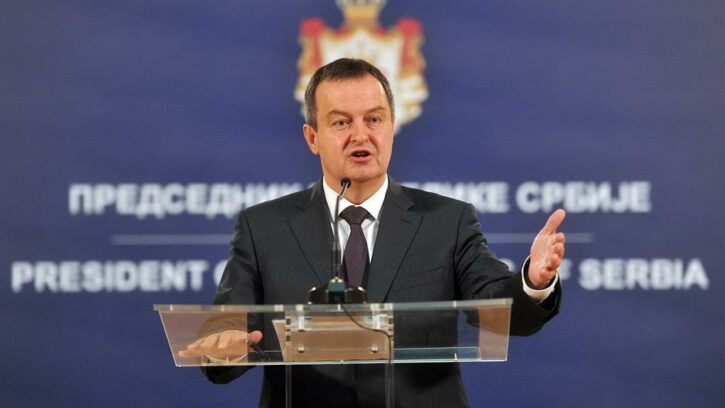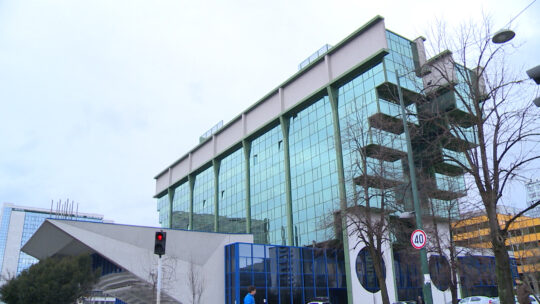
Nobody should criticise Serbia for saying that it has a vital interest in a strong and stable Republika Srpska (RS), the Serb-majority half of Bosnia, Serbia's Foreign Affairs Minister Ivica Dacic said on Tuesday.
“If (Turkey's President Recep Tayyip) Erdogan can say that Sarajevo is of vital importance to Turkey, why can we not say that our vital interest is Republika Srpska?” Dacic asked.
Republika Srpska is the semi-autonomous Serb-dominated entity within Bosnia and Herzegovina, established in the 1995 Dayton Peace Agreement, which ended the Bosnian war.
Dacic appealed to all in the RS to take into account the interests of the entity, saying that the narrative in the region has the goal to weaken Serbia so it grants Kosovo recognition as an independent state and also “maybe” in order to change Bosnia's Constitution and weaken the RS.
Dacic denied allegations that Serbia's police recently intervened in Banja Luka, the administrative centre of the entity, to help the police there shut down a protest.
Citizens there have been protesting since March 2018 under the slogan ‘Justice for David’, referring to the controversial death of David Dragicevic, whose parents believe the RS Interior Ministry is hiding the murderers of their son.
The protest has intensified since December 25, when RS police temporarily detained David's parents, which caused a scuffle between the officers and citizens.
David's mother, Suzana Radanovic, alleged that police forces from neighbouring Serbia took part in the police operation, which Serbia's President, Aleksandar Vucic, firmly denied.
According to Dacic, such a statement has the goal of pulling Belgrade into the crisis and portraying Serbia as a destabilising factor in the region.
“Serbia's interest is not to destabilise Republika Srpska or to interfere in the political relations there, and especially not to participate in any police operations,” he said.
He appealed to regional leaders to turn toward the future and tend to joint interests together with Serbia, but also added that one cannot expect Serbia to advocate for the interests of others instead of its own.
“Serbia wants good relations with everybody, but being a European does not mean being anti-Serb. Being a European means advocating for one's national and state interests,” he concluded.




